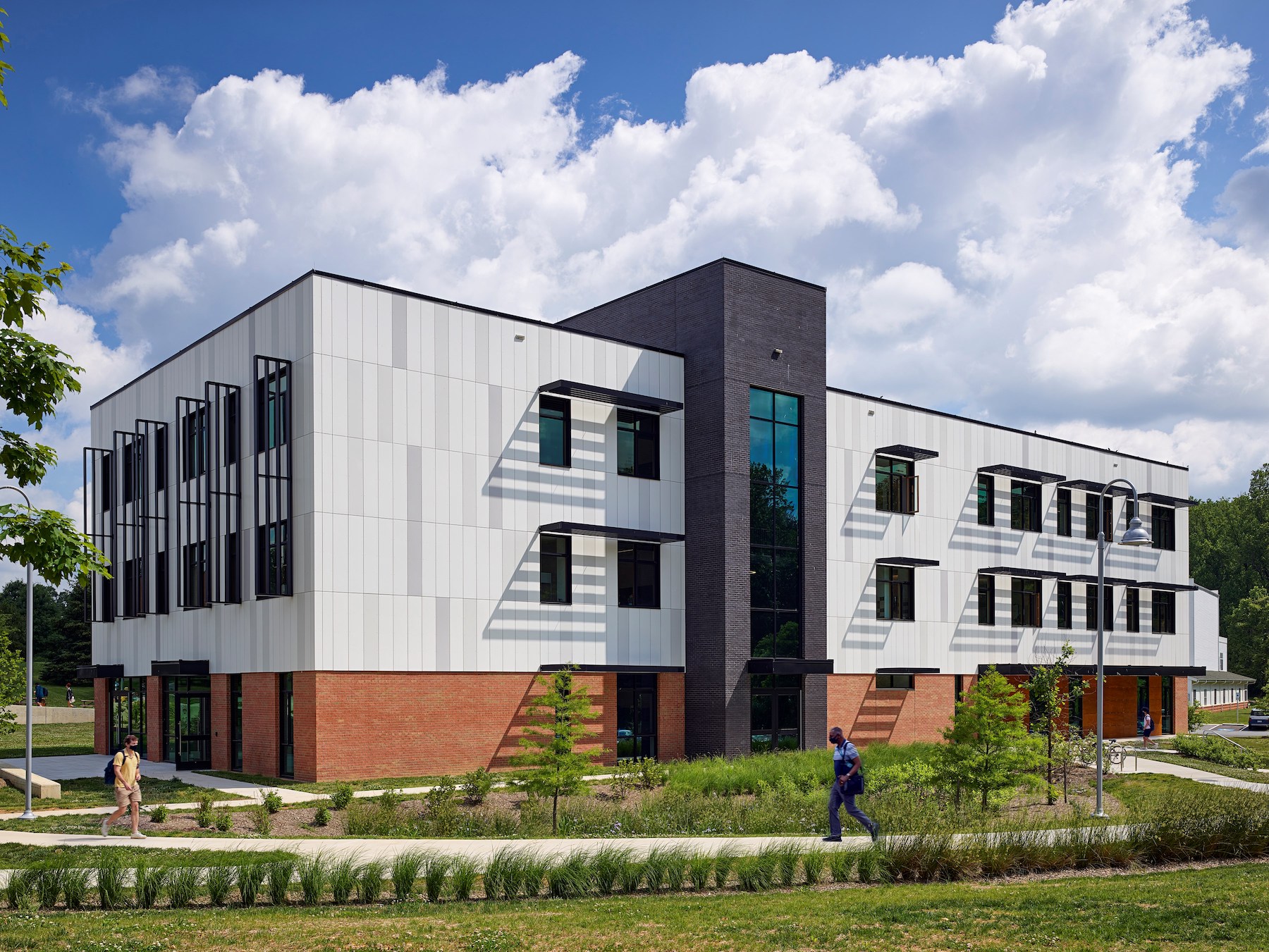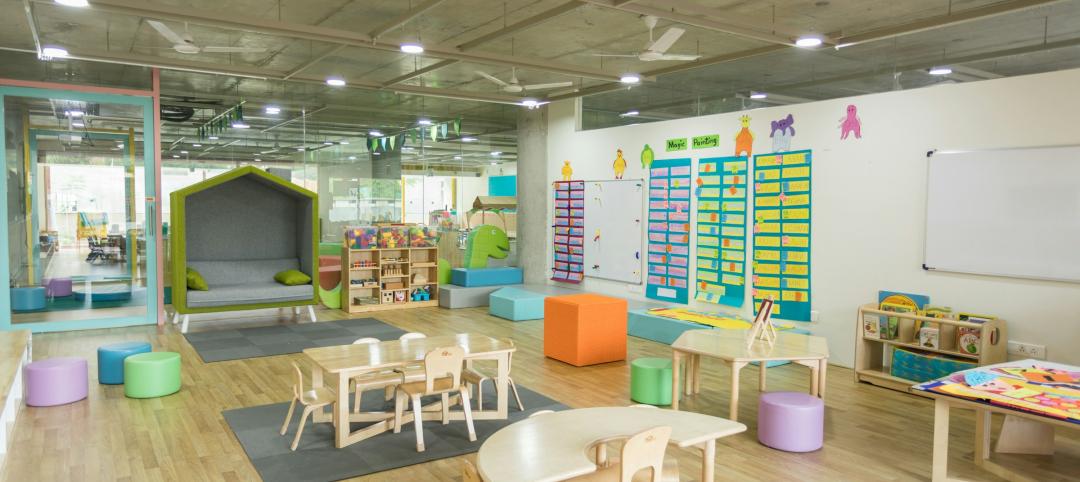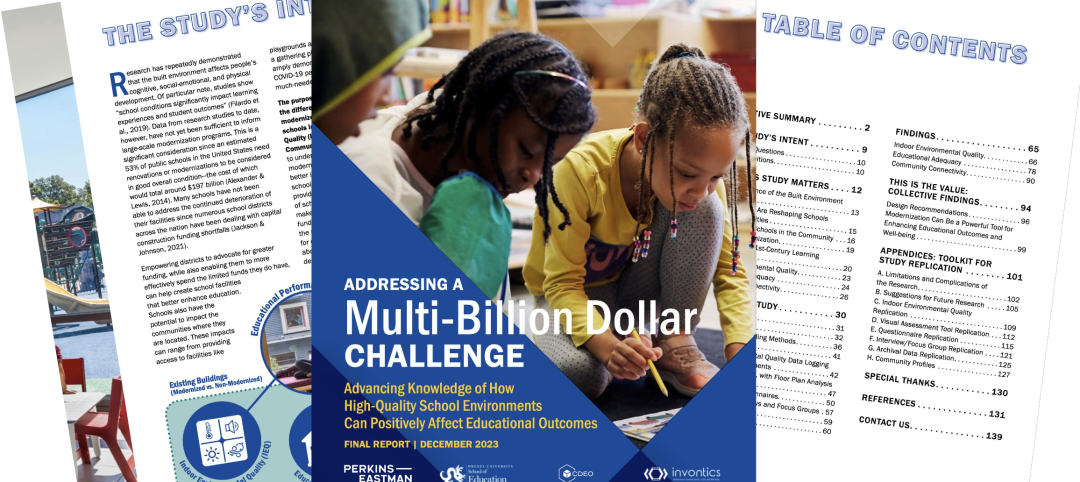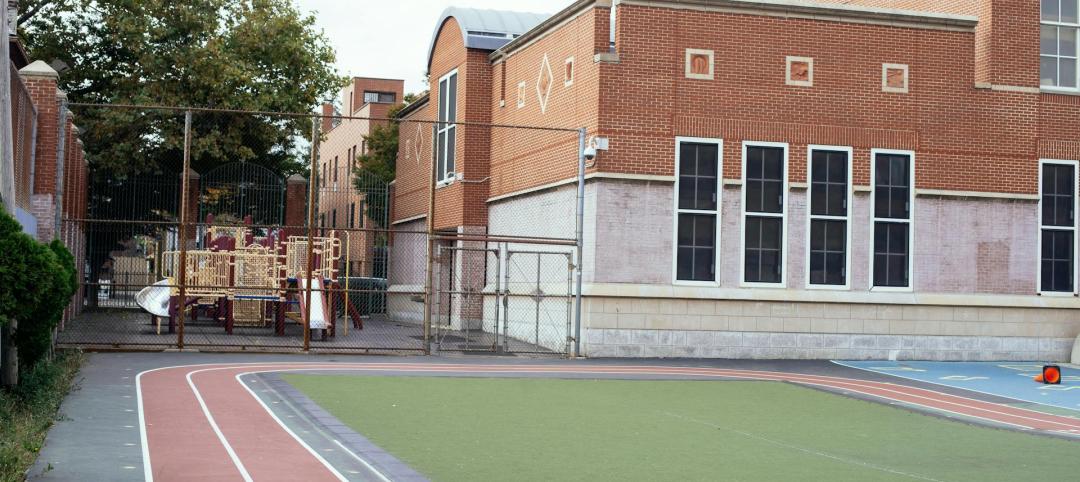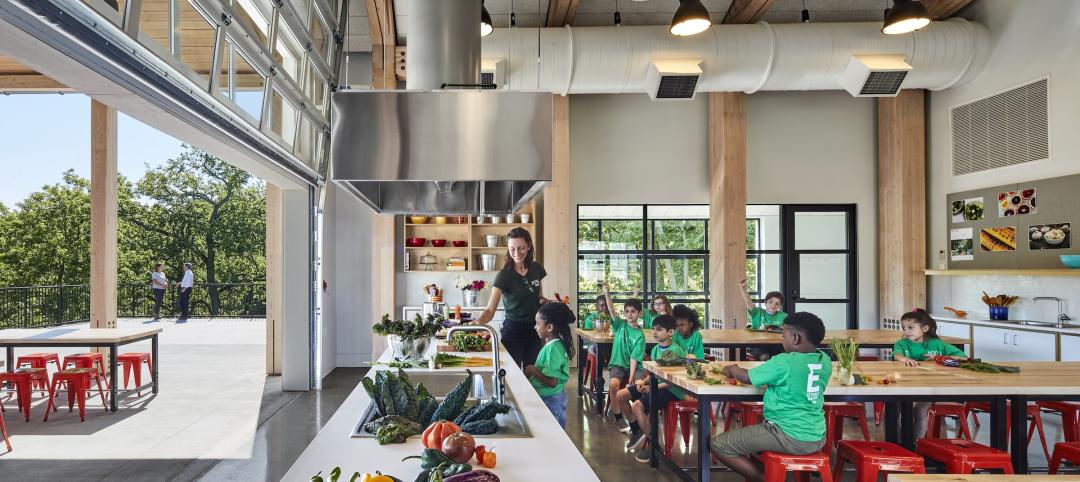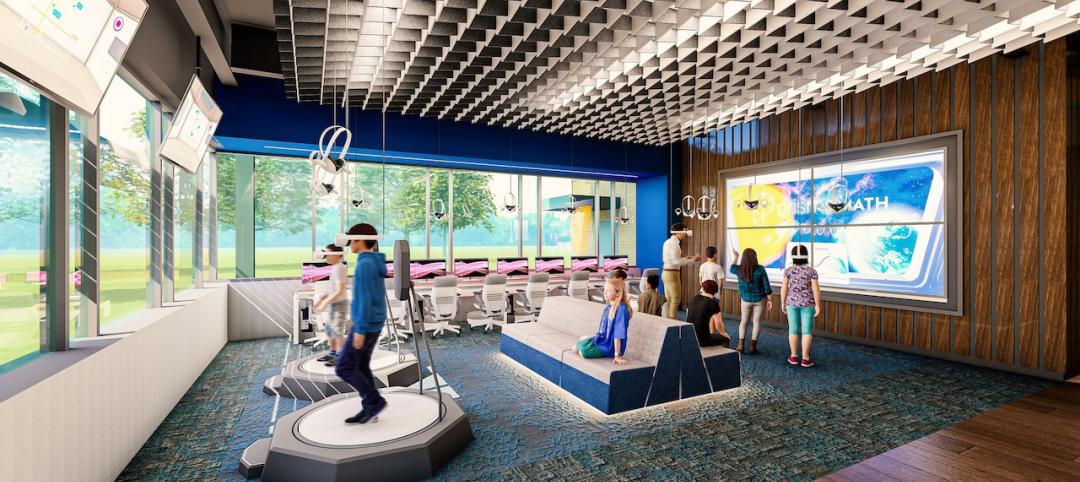Designed by Stantec, a Quaker high school is the first in the US to receive WELL Gold certification, which recognizes a commitment to occupants’ health and well-being. Part of the Sandy Spring Friends School (SSFS), the new Pen y Bryn Upper School serves students in grades 9 through 12. Stantec provided architecture, interior design, and engineering for the Upper School.
Founded in 1961, the SSFS campus houses multiple educational buildings for more than 650 students from preschool through 12th grade. SSFS sits on a pastoral 140-acre campus in Maryland, midway between Baltimore and Washington, D.C.
Stantec’s simple, elegant design is meant to align with the school’s Quaker values of simplicity, peace, integrity, community, equality, and stewardship. In the new Upper School, students and teachers have access to a variety of educational environments—traditional classrooms, open or closed collaboration areas, and social spaces—that offer dynamic lighting solutions and flexible, ergonomic furniture.
The design features a biophilic strategy involving both environmental elements and energy solutions. The building extends learning to the outdoors with a covered front porch beside a meditation garden, a sunny maker-space patio, and a roof terrace. Inside, expanses of floor-to-ceiling glass provide daylight and exterior views in the classrooms, collaboration areas, offices, and social areas. The interior also incorporates large areas of ash wood walls created from trees reclaimed onsite.
In addition to its WELL Gold design, the Upper School is engineered as a net zero energy-ready facility: The total amount of energy used by the building annually roughly equals the amount of renewable energy created on the site or nearby.
On the building team:
Owner: Sandy Spring Friends School
Design architect and architect of record: Stantec
MEP engineer: 2RW Consultants
Structural engineer: Keast & Hood
General contractor/construction manager: Keller Brothers, Inc.
Civil engineer: Stantec
Landscape architect: Brian J. Stephenson + Company
WELL building consultant: Delos Living
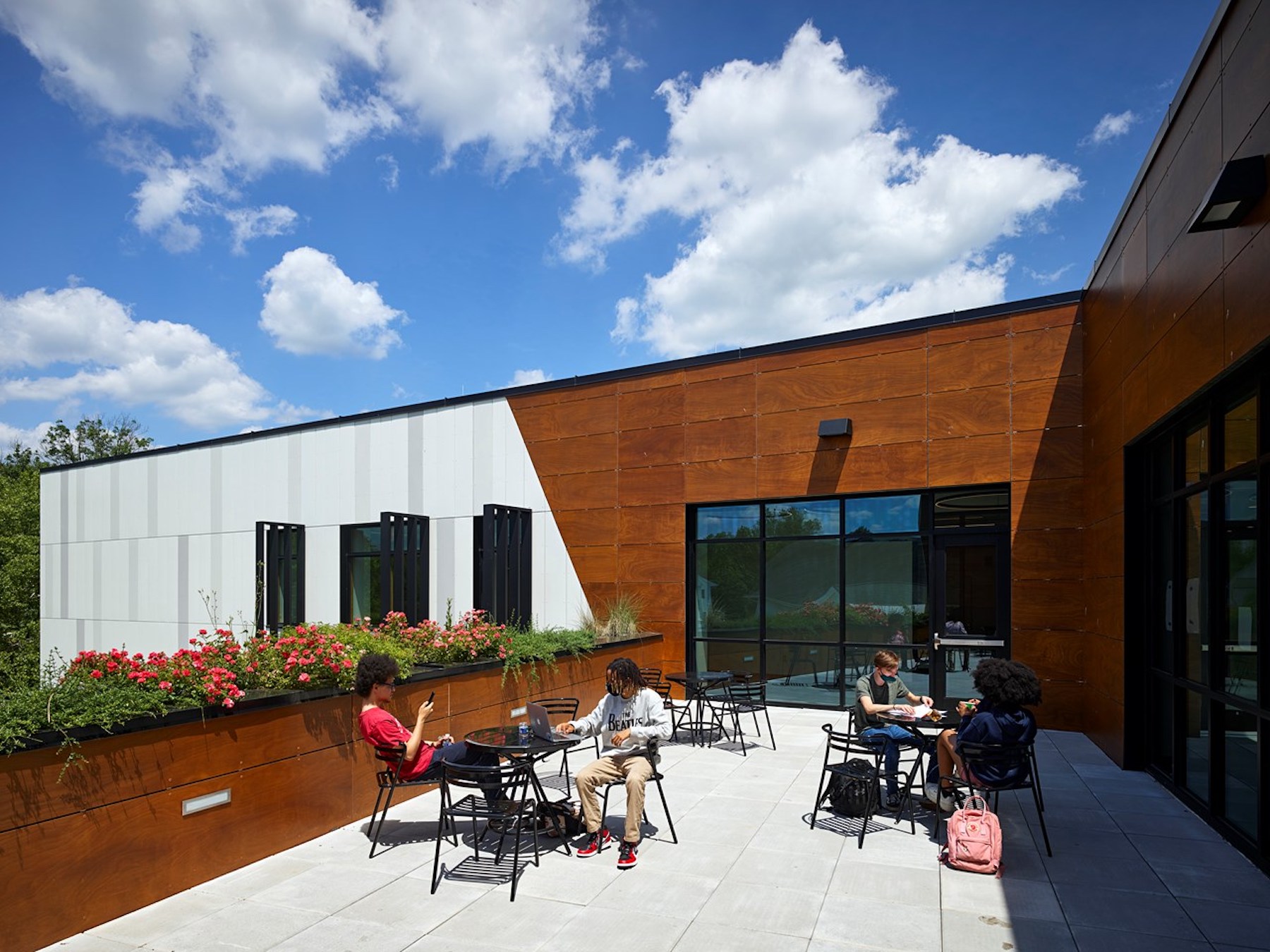
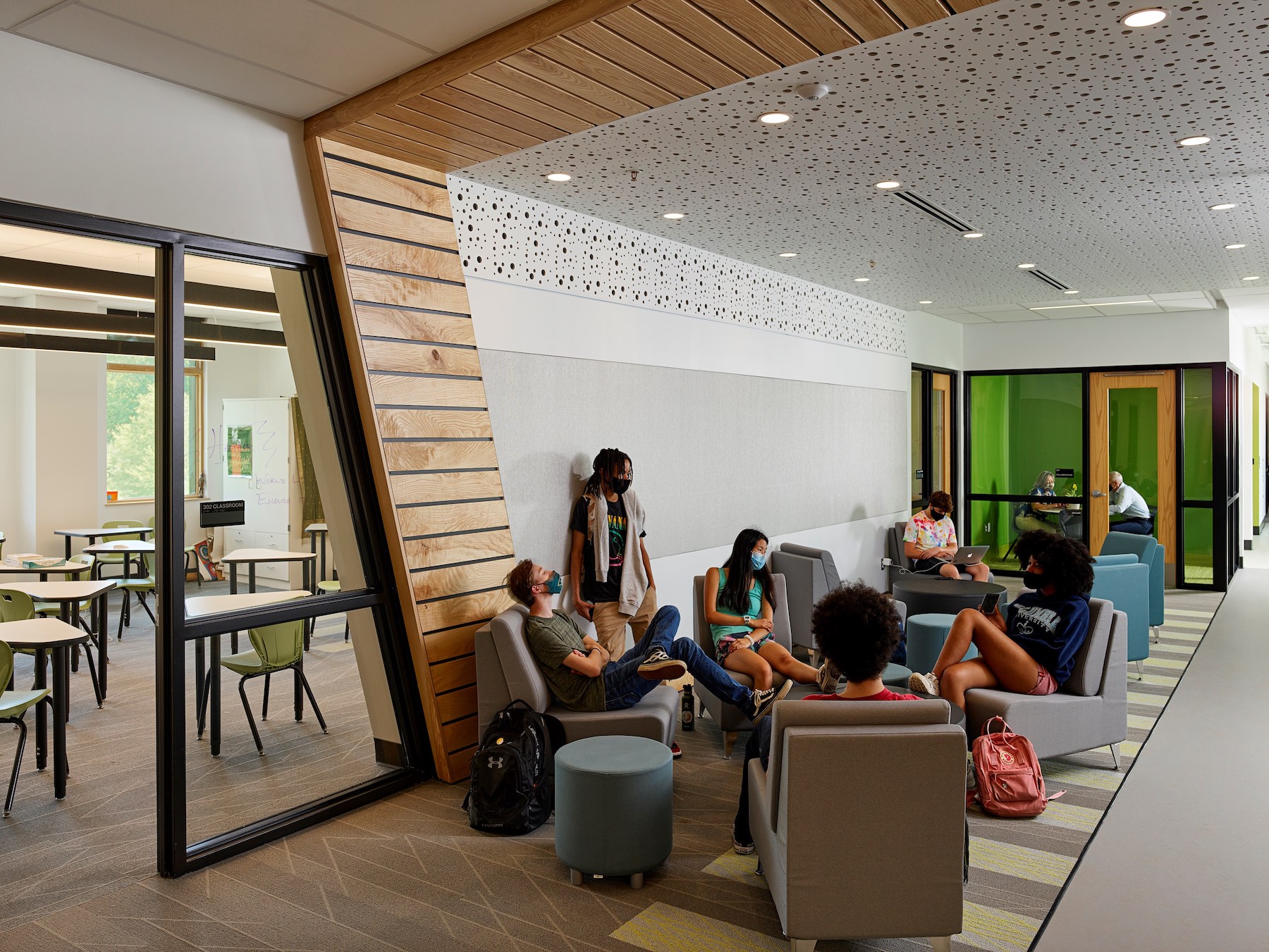
Related Stories
K-12 Schools | Apr 10, 2024
Surprise, surprise: Students excel in modernized K-12 school buildings
Too many of the nation’s school districts are having to make it work with less-than-ideal educational facilities. But at what cost to student performance and staff satisfaction?
K-12 Schools | Apr 1, 2024
High school includes YMCA to share facilities and connect with the broader community
In Omaha, Neb., a public high school and a YMCA come together in one facility, connecting the school with the broader community. The 285,000-sf Westview High School, programmed and designed by the team of Perkins&Will and architect of record BCDM Architects, has its own athletic facilities but shares a pool, weight room, and more with the 30,000-sf YMCA.
Security and Life Safety | Mar 26, 2024
Safeguarding our schools: Strategies to protect students and keep campuses safe
HMC Architects' PreK-12 Principal in Charge, Sherry Sajadpour, shares insights from school security experts and advisors on PreK-12 design strategies.
K-12 Schools | Mar 18, 2024
New study shows connections between K-12 school modernizations, improved test scores, graduation rates
Conducted by Drexel University in conjunction with Perkins Eastman, the research study reveals K-12 school modernizations significantly impact key educational indicators, including test scores, graduation rates, and enrollment over time.
K-12 Schools | Feb 29, 2024
Average age of U.S. school buildings is just under 50 years
The average age of a main instructional school building in the United States is 49 years, according to a survey by the National Center for Education Statistics (NCES). About 38% of schools were built before 1970. Roughly half of the schools surveyed have undergone a major building renovation or addition.
Construction Costs | Feb 22, 2024
K-12 school construction costs for 2024
Data from Gordian breaks down the average cost per square foot for four different types of K-12 school buildings (elementary schools, junior high schools, high schools, and vocational schools) across 10 U.S. cities.
K-12 Schools | Feb 13, 2024
K-12 school design trends for 2024: health, wellness, net zero energy
K-12 school sector experts are seeing “healthiness” for schools expand beyond air quality or the ease of cleaning interior surfaces. In this post-Covid era, “healthy” and “wellness” are intersecting expectations that, for many school districts, encompass the physical and mental wellbeing of students and teachers, greater access to outdoor spaces for play and learning, and the school’s connection to its community as a hub and resource.
K-12 Schools | Jan 25, 2024
Video: Research-based design for K-12 schools
Two experts from national architecture firm PBK discuss how behavioral research is benefiting the design of K-12 schools in Texas, Florida, and other states. Dan Boggio, AIA, LEED AP, NCARB, Founder & Executive Chair, PBK, and Melissa Turnbaugh, AIA, NCARB, Partner & National Education & Innovation Leader, PBK, speak with Robert Cassidy, Executive Editor, Building Design+Construction.
K-12 Schools | Jan 8, 2024
Video: Learn how DLR Group converted two big-box stores into an early education center
Learn how the North Kansas City (Mo.) School District and DLR Group adapted two big-box stores into a 115,000-sf early education center offering services for children with special needs.
Designers | Jan 3, 2024
Designing better built environments for a neurodiverse world
For most of human history, design has mostly considered “typical users” who are fully able-bodied without clinical or emotional disabilities. The problem with this approach is that it offers a limited perspective on how space can positively or negatively influence someone based on their physical, mental, and sensory abilities.


